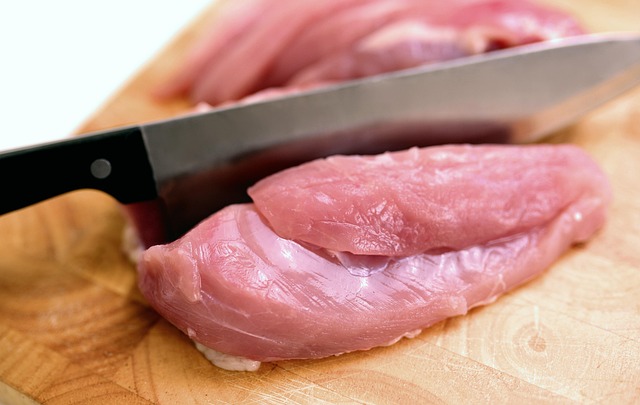Many people enjoy pork as part of their meals, but health experts and cultural traditions have raised concerns about its safety.
If you’re wondering why pork is not recommended to eat, the answer touches on several issues, including health risks, hygiene concerns, and the way pork is processed.
These concerns are not new. For centuries, different communities have questioned pork’s place in the human diet for good reason.
1. Health Risks Linked to Pork
Pork is known to carry parasites and bacteria that can cause illness if not cooked properly. One of the most well-known risks is trichinosis, an infection caused by eating raw or undercooked pork infected with Trichinella larvae.
Symptoms of trichinosis include stomach pain, diarrhea, fatigue, fever, and muscle soreness. This is one major reason why pork is not recommended to eat, especially in areas where food safety standards are not strictly followed.
Aside from parasites, pork can also be a source of harmful bacteria like Salmonella and Listeria. These bacteria can survive in improperly cooked meat and lead to serious food poisoning.
In extreme cases, these infections can even be life-threatening for children, pregnant women, the elderly, and people with weak immune systems.
Click here to learn more about whether your favorite foods and drinks are unhealthy.
2. High Fat and Sodium Content
Pork, especially processed types like bacon, sausages, and ham, tends to have high levels of saturated fat and sodium.
Saturated fat raises LDL cholesterol, which can lead to heart disease and clogged arteries. Sodium increases the risk of high blood pressure and stroke.
People with existing heart conditions or those trying to lose weight are often advised to limit or avoid pork entirely.
This helps explain why pork is not recommended for those trying to manage chronic health issues through diet. Even unprocessed pork cuts can contain more unhealthy fat than other meats like chicken or fish.
Click here to learn more about 7 foods that make you smell bad.
3. Concerns with Modern Farming
Another concern is the way pork is produced in modern farming systems. Pigs are often raised in overcrowded conditions, increasing the risk of disease.
To prevent outbreaks, farms may use antibiotics in animal feed. Over time, this practice contributes to antibiotic resistance in humans.
This means common infections could become harder to treat with standard medications.
Growth hormones and chemicals may also be used to fatten pigs quickly. Traces of these substances can end up in the meat people consume.
This is one more reason why pork is not recommended to eat, especially for those trying to avoid unnecessary chemical exposure.
Click here to learn more about healing foods for back pain.
4. Hygiene and Cleanliness Concerns
Pigs are often seen as dirty animals because of their feeding habits. They eat almost anything, including waste and spoiled food.
This has led to the belief that their meat is unclean or unsafe for human consumption.
Though pigs raised on regulated farms are fed balanced diets, many people still feel uneasy about eating pork due to its reputation.
Even with modern regulations, pork still requires more careful handling than other meats. It must be stored at the right temperature and cooked to an internal temperature of at least 145°F (63°C). Failing to do so increases the risk of infection and illness.
Click here to learn more about the dangers of a raw food diet.
5. Religious and Cultural Reasons
Several major religions ban pork altogether. In Islam and Judaism, pork is considered forbidden and unclean.
These dietary rules were created long ago, often due to health risks associated with pork in ancient times.
Today, many still follow these rules, not just for religious reasons but also because they align with good health practices.
Cultural avoidance of pork isn’t limited to religion. In some Asian and African communities, pork is considered unhealthy or inappropriate for regular meals.
These long-standing beliefs reflect deep-rooted concerns about safety, digestion, and moral values.
Click here to learn more about what causes pooping undigested food.
Summary
So, why is pork not recommended to eat? The answer comes down to several key points:
- Risk of parasites and foodborne illnesses
- High levels of saturated fat and sodium
- Use of antibiotics and hormones in pig farming
- Hygiene concerns with how pigs live and eat
- Cultural and religious practices that warn against it
By understanding these reasons, individuals can make better choices about what they put on their plates.
Click here to learn why you shouldn’t drink water after eating these foods.
A Word from GetMe Treated
Understanding why pork is not recommended for eatingp can help people make smarter dietary decisions. Whether you’re concerned about health, hygiene, or personal beliefs, choosing what to eat should always come from a place of knowledge and care.
FAQs About Why Is Pork Not Recommended to Eat
Can pork be made safe by cooking it well?
Yes, thorough cooking kills parasites and bacteria. However, even cooked pork may still be high in fat and sodium.
What diseases can you get from eating pork?
Diseases include trichinosis, salmonella infection, listeriosis, and toxoplasmosis. These can lead to serious health problems if untreated.
Why do doctors warn against processed pork?
Processed pork like bacon and ham often contains nitrates, preservatives, and high sodium. These ingredients are linked to cancer, heart disease, and hypertension.
Is pork worse than beef or chicken?
Pork is usually higher in fat and may carry more health risks if not handled properly. Chicken and fish are often seen as healthier options.
Do pigs eat anything?
Yes, pigs are scavengers by nature and may eat spoiled food or waste. Farm-raised pigs are usually fed safer diets, but concerns about their eating habits remain.
Can I eat pork during pregnancy?
Pregnant women are advised to avoid undercooked pork due to the risk of infections like toxoplasmosis and listeriosis, which can harm the baby.

